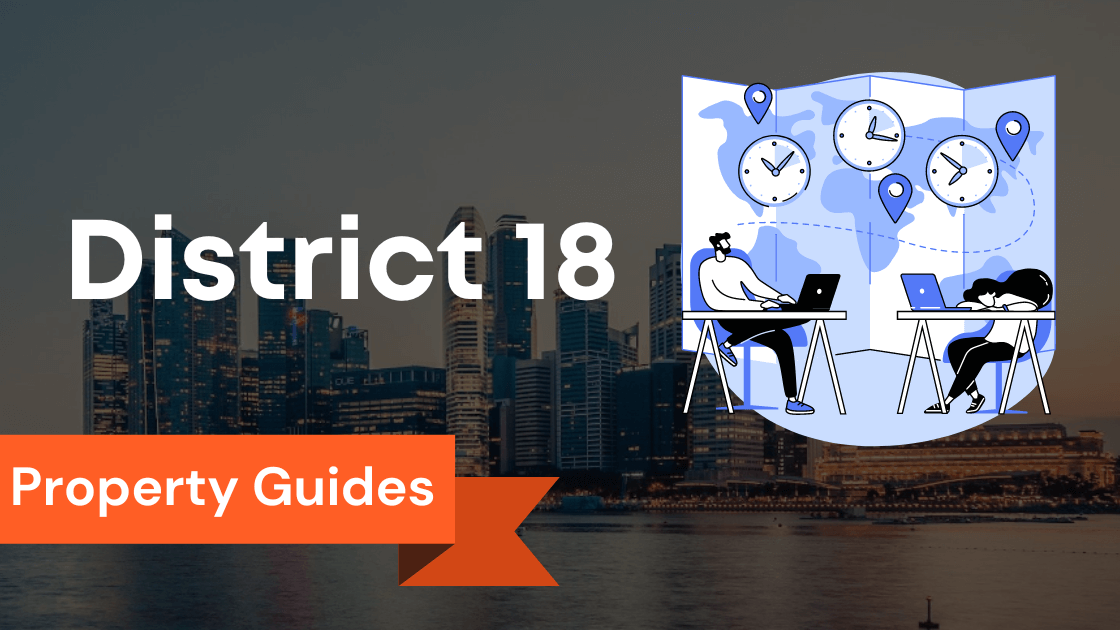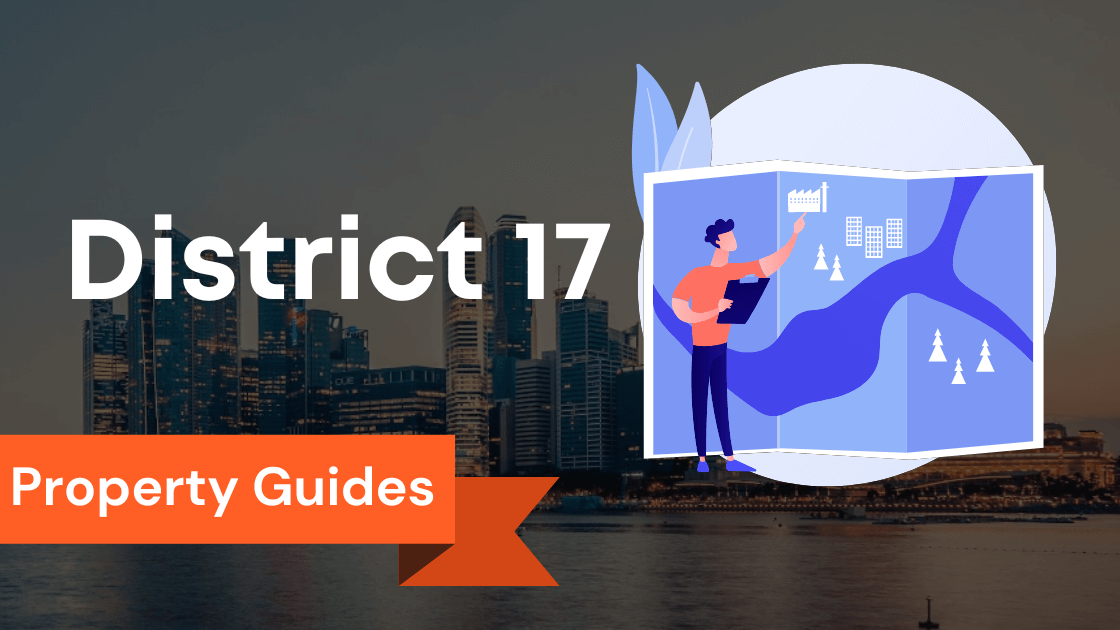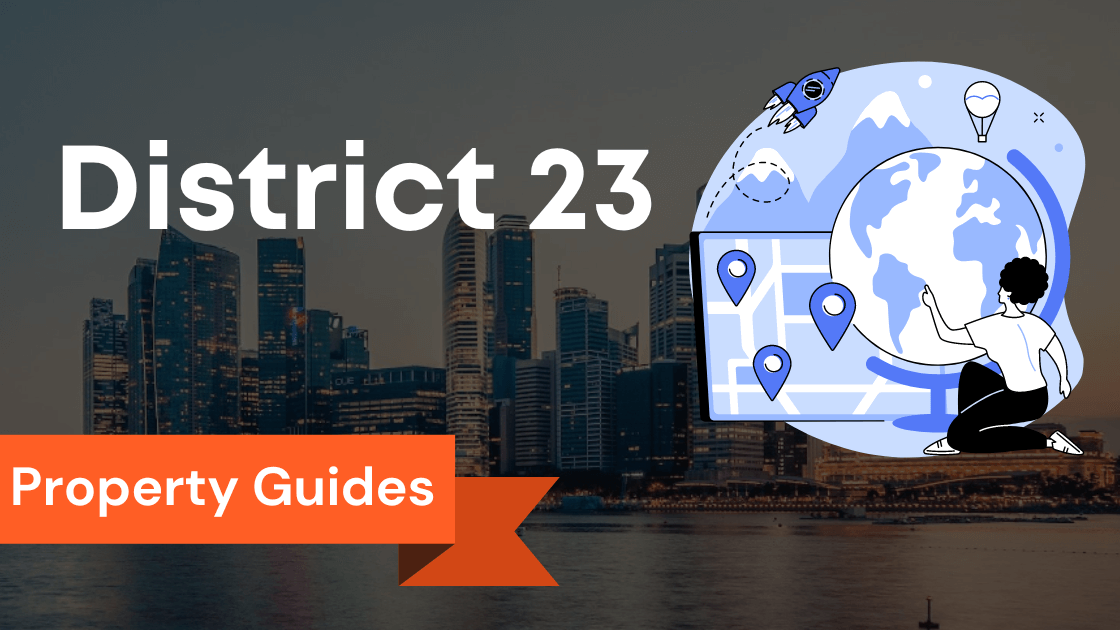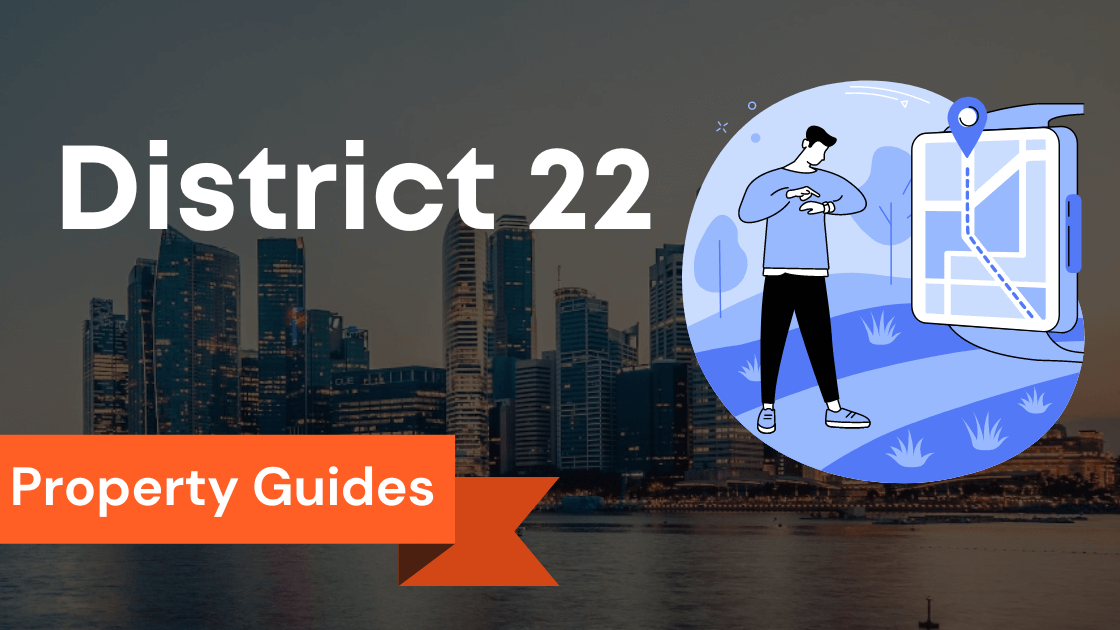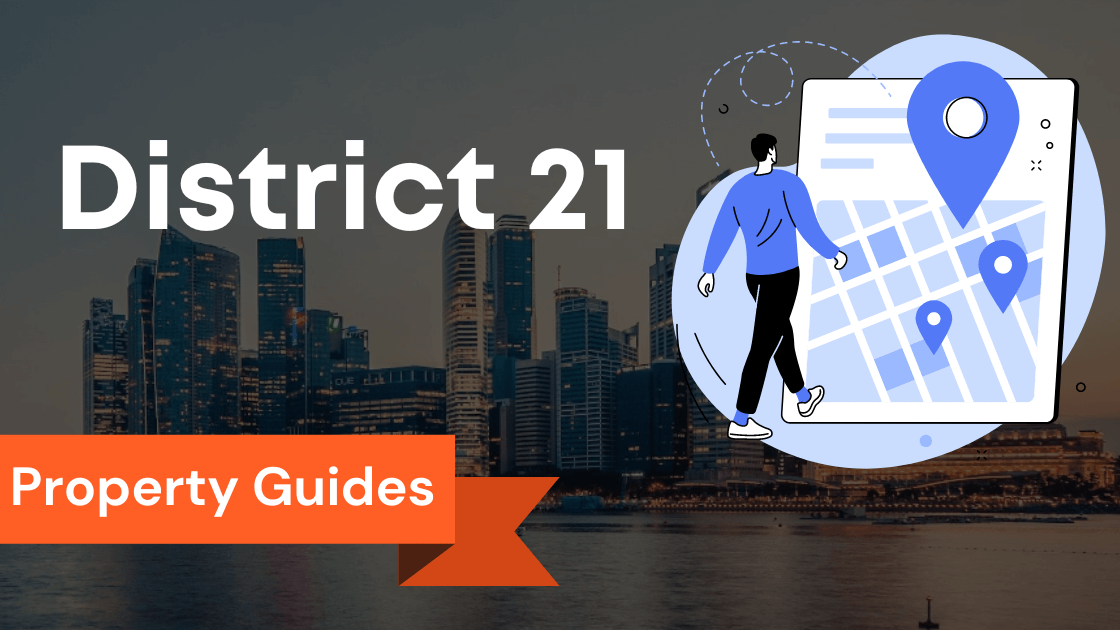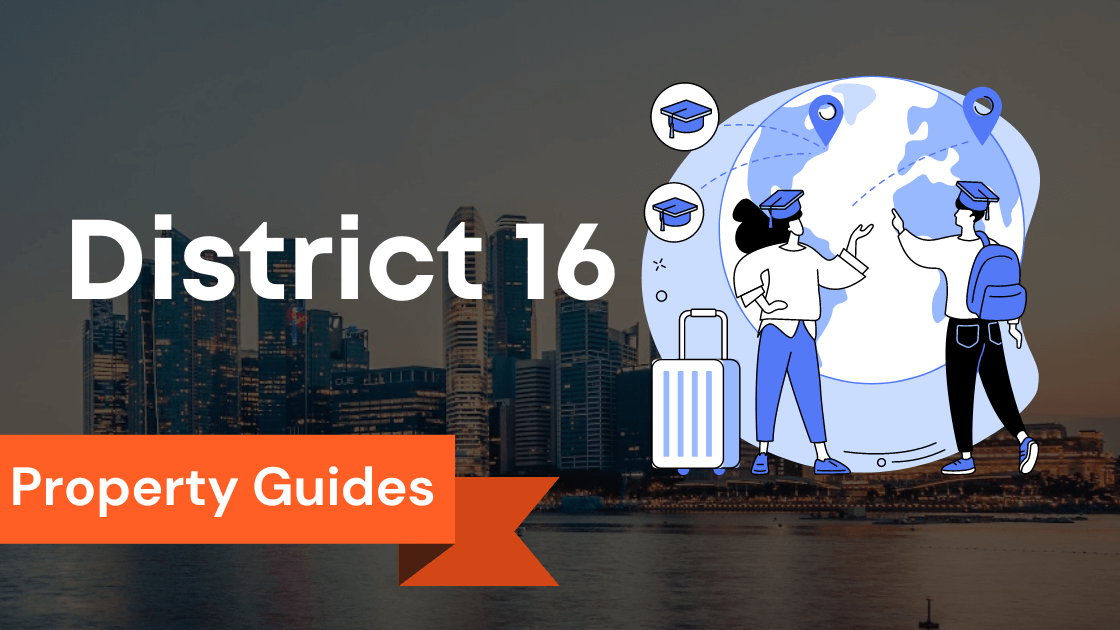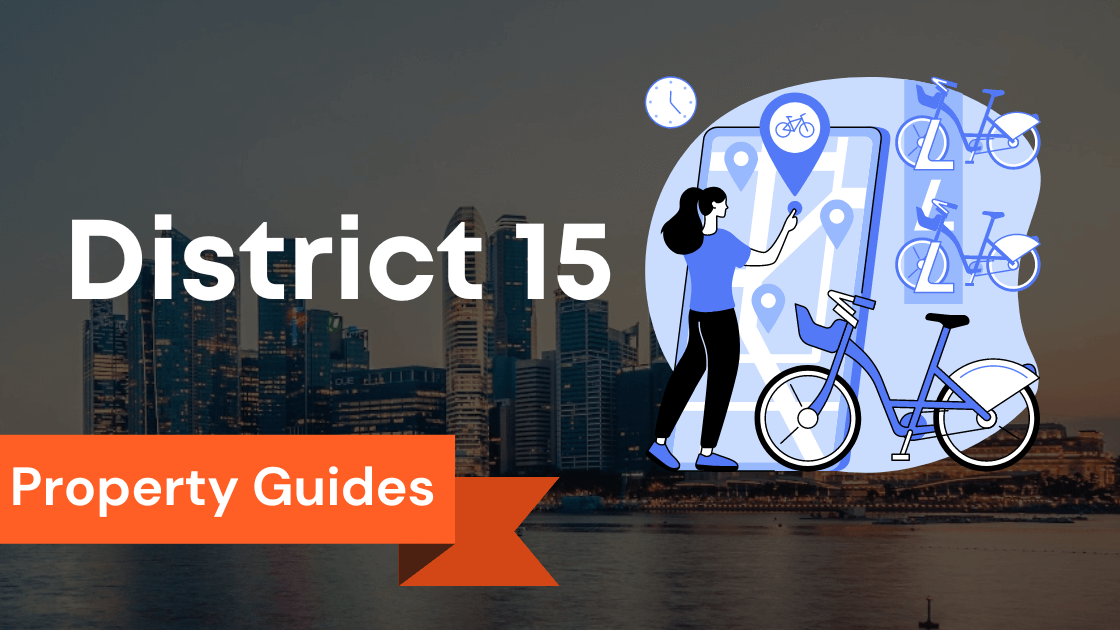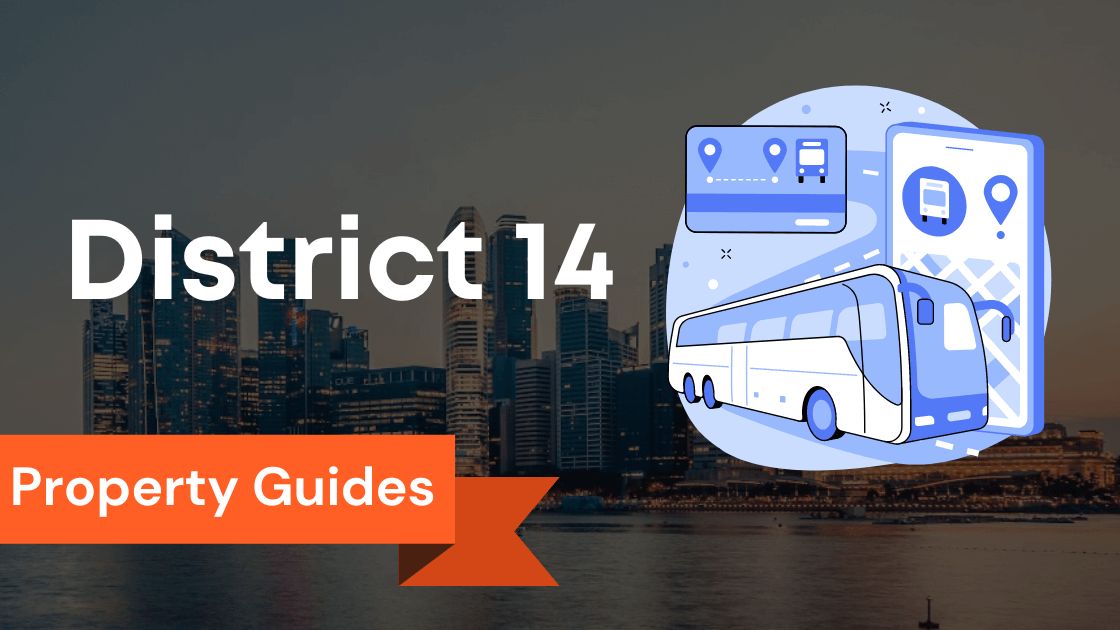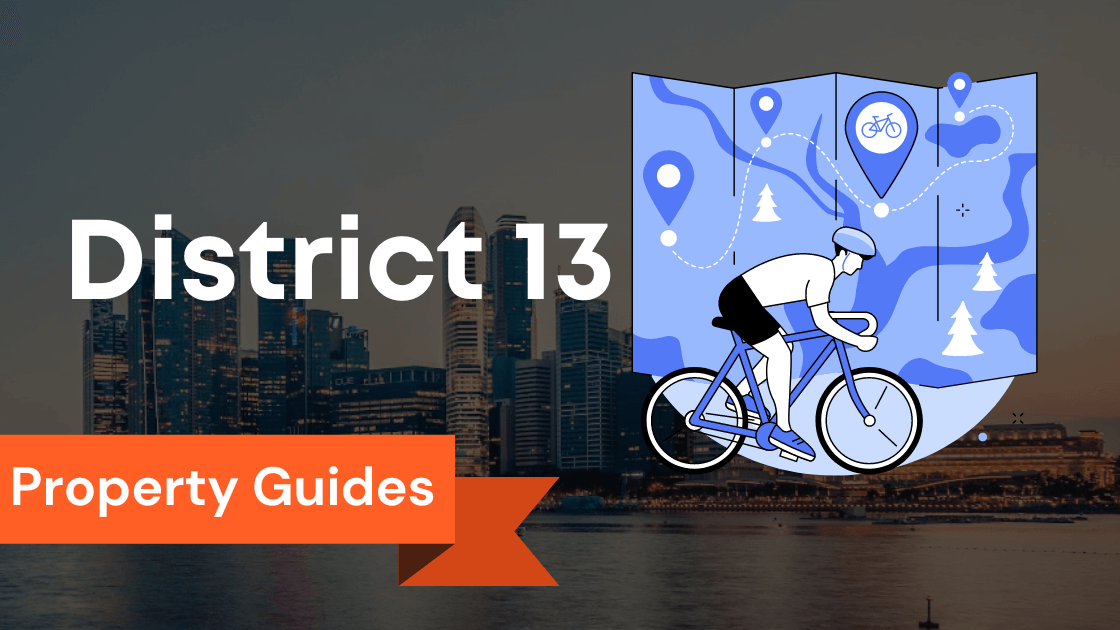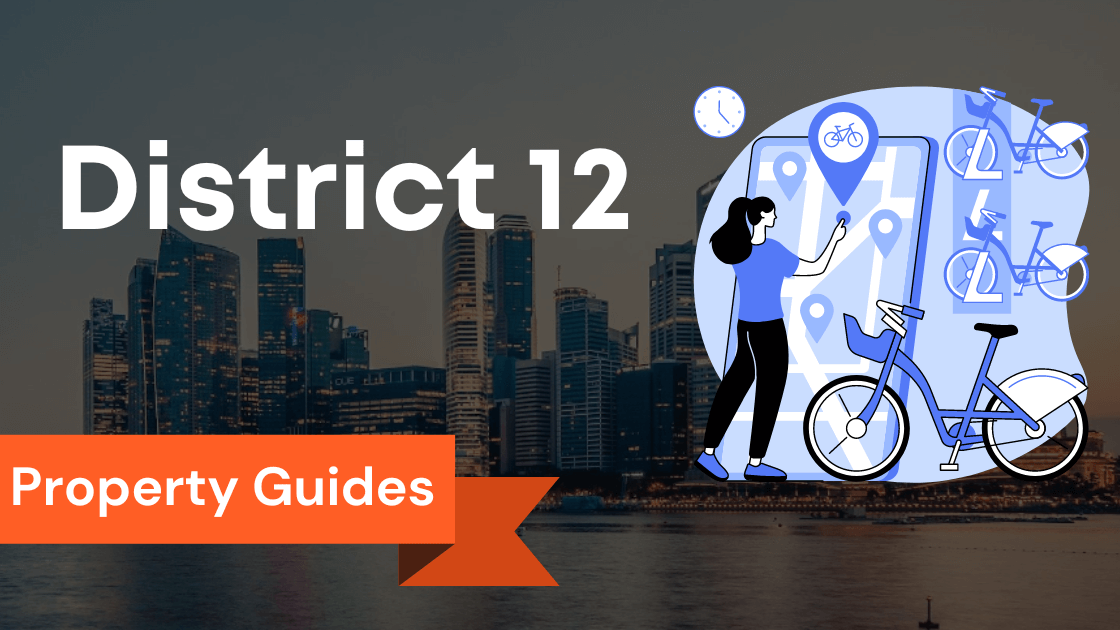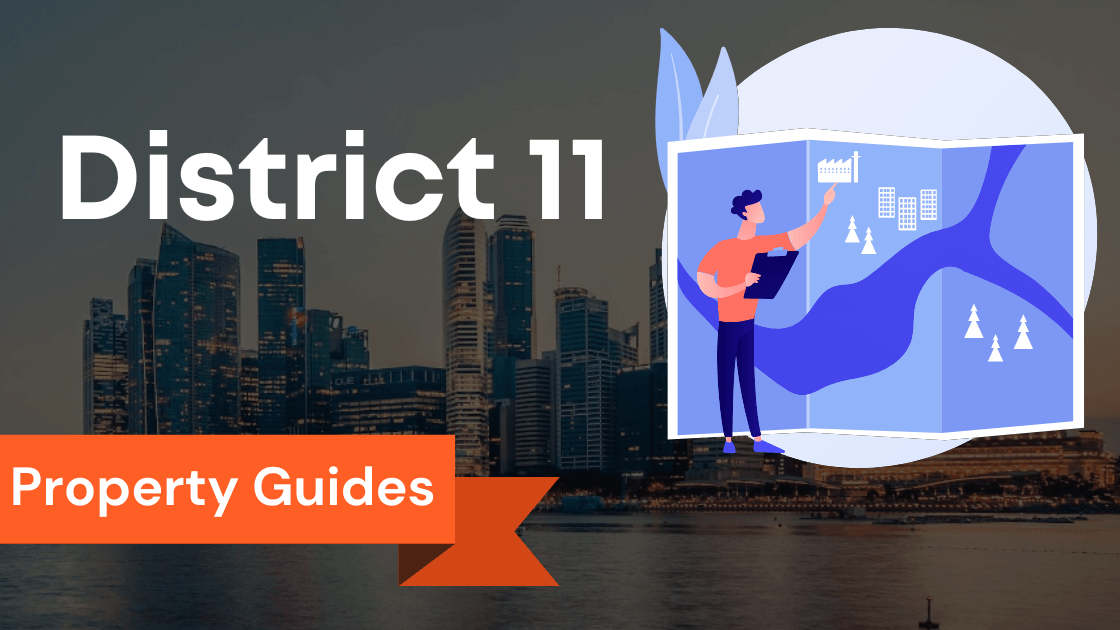Discover District 19 Singapore Condos in Hougang, Punggol, and Sengkang | Your Guide to D19 Singapore Property in Serangoon Garden
Introduction to District 19 Singapore District 19 Singapore is a vibrant and highly sought-after...
Explore District 18 Singapore Property for Sale: Pasir Ris, Tampines Condos at the Best Price – Research and Square Footage
Introduction to District 18 Singapore Situated in the eastern part of Singapore, District 18 is a...
Explore District 17 Singapore Property: Changi Airport Condos for Sale in Changi Village | Find Top Property Listings and Prices
Introduction to District 17 Singapore District 17 Singapore, located in the eastern part of the...
Explore District 23 Singapore: Bukit Batok, Choa Chu Kang, Bukit Panjang, and Dairy Farm | Landed Property and Condos for Sale in D23 | Condo Directory
Discover District 23 Singapore – a vibrant, diverse oasis in the west. Bukit Batok, Bukit Panjang,...
Sale in District 22: Exploring Jurong and Tuas, Boon Lay, Condo Directory, and Condos for Sale in Singapore
Explore the vibrant tapestry of District 22 Singapore, a captivating fusion of residential,...
Discovering the Charm of District 21 in Singapore: A Comprehensive Neighbourhood District Guide in Upper Bukit Timah and Clementi
Step into the enchanting world of District 21 Singapore, where vibrant urban living meets the...
House and Condo for Rent and Sale in District 16 Singapore – Find Your Ideal Property in Bedok and Upper East Coast | Price and Rental
Overview of District 16 Singapore and its popular neighborhoods District 16 Singapore, located in...
Explore District 15 Singapore: Find East Coast Condos and Properties for Sale in Marine Parade | Condo Sale in District 15
District 15 in Singapore is a highly sought-after residential area on the island's eastern coast....
Discover the Charm of District 14 Singapore: Paya Lebar, Geylang, Eunos Condos and More in the Vibrant Condo Directory
Situated in the heart of Singapore, District 14 is a vibrant and bustling area that offers a...
District 13 Singapore: Explore Property Rentals, Condos, and Apartments in the Area for Optimal Gain in Price Trends
District 13 Singapore is a vibrant and bustling area located in the eastern part of the country....
Comprehensive Guide to District 12 Properties: Find Apartments and Condos for Sale in Thomson, Novena, and Toa Payoh Singapore
Discover District 12 Singapore, where vibrant urban living meets convenience. From historical...
Unveiling the District 11 Singapore Property Landscape: Exploring Price Trends, Capital Gain, Apartment, Condos and Rental Yields
Welcome to District 11 Singapore, a captivating blend of urban vibrancy and serene living. Its...
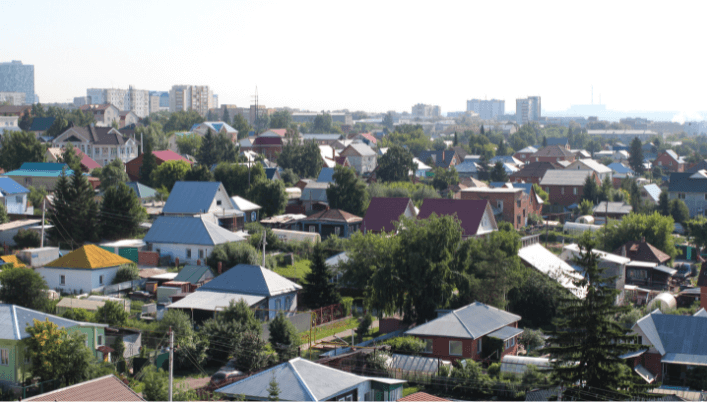
When it comes to choosing a property in Singapore, there are various options available to potential buyers.
One popular type of property is landed properties, which offer a different living experience compared to condominiums and other residential buildings.
In this article, we will explore the different types of landed properties in Singapore, their key features, and what makes them unique in the real estate market.
Key Takeaways
- Landed Property Overview: Landed properties in Singapore are exclusive residential properties built on land, offering privacy and spaciousness. They include bungalows, semi-detached, detached, and terrace houses.
- Lifestyle Benefits: Landed properties provide ample outdoor space, gardens, and amenities like swimming pools, offering a luxurious and comfortable living experience.
- Good Class Bungalows (GCBs): GCBs are prestigious and exclusive properties in prime residential areas, with strict regulations on plot size and layout to maintain their exclusivity.
- Ownership Restrictions: GCB ownership is limited to Singapore citizens and those without other residential properties, preventing speculative purchases.
- Detached Houses: Standalone homes providing full property control, customization, and outdoor space. However, maintenance and costs are higher.
- Semi-Detached Houses: A balance between privacy and community living, often more affordable than detached houses.
- Terrace Houses: Row houses with uniform facades, multiple stories, and shared walls, providing traditional charm and more living space.
- Bungalows: Single-story, spacious homes offering a laid-back lifestyle, upscale living, and potential investment opportunities.
- Cluster Houses: Blend of privacy and community, with shared facilities, security, and ease of living.
- Townhouses: Affordable urban living with shared walls, customization options, and a sense of community.
- Navigating the Market: Consider leasehold duration, zoning, and financing, and engage a professional agent when buying landed property.
- Private vs. Landed Properties: Private properties offer facilities and convenience, while landed properties offer customization and exclusivity.
- Investment Potential: Freehold and leasehold properties offer investment opportunities with capital appreciation.
- Strata-Titled Landed Properties: Collective ownership of land and individual units, a more affordable landed option.
- Prestigious Districts: Certain districts like Cluny and Sentosa Cove offer luxurious landed properties with high-end amenities.
- Legal and Financial Considerations: Consider legal approvals, regulations, property taxes, economic contributions, and investment returns.
- Buying Process: Steps include property search, viewing, negotiation, and completion of legal paperwork.
- Choosing the Right Property: Factors include location, land area, built-up area, and overall property condition.
- Property Management: Owning a landed property requires regular upkeep, repairs, and compliance with regulations.
Understanding Landed Properties: An Overview

What are landed properties?
Landed properties refer to residential properties that are built on land or have a land title.
These properties offer a sense of exclusivity and privacy as they are not part of a larger development.
Unlike condominiums or apartments, landed properties usually do not have common facilities or shared spaces with other residents.
What are the different types of landed properties in Singapore?
In Singapore, there are several types of landed properties available for purchase.
Some of the most common types include bungalows, semi-detached houses, detached houses, and terrace houses.
Each type offers different living arrangements and features.
Buyers can choose based on their preferences and budget.
What are the key features of landed properties?
Landed properties come with various key features that attract buyers.
One of the main advantages is the spaciousness and privacy they offer.
Landed properties generally have larger plot sizes compared to apartments or condominiums, allowing homeowners to enjoy more outdoor space.
Additionally, landed properties often come with amenities such as gardens, swimming pools, and private parking spaces.
These features offer a luxurious and comfortable living experience.
Exploring the Charm of Good-Class Bungalows
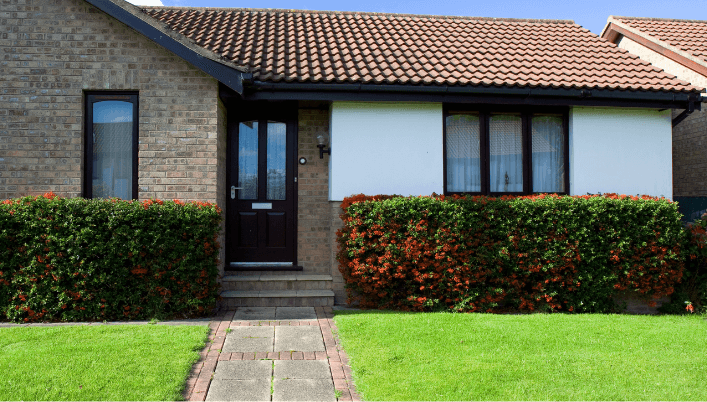
What is a Good Class Bungalow (GCB)?
A Good Class Bungalow (GCB) is a type of landed property that is highly prestigious and exclusive.
These bungalows are usually located in prime residential areas in Singapore and are known for their luxurious features and large plot sizes.
GCBs are often considered the pinnacle of landed properties in the country.
How are Good Class Bungalows unique in Singapore?
GCBs are unique in Singapore due to their strict regulations and requirements.
To own a GCB, the minimum plot size must be at least 1,400 square meters.
Additionally, there are restrictions on the height and layout of the building to maintain the exclusivity and privacy of these properties.
The Urban Redevelopment Authority (URA) closely regulates the sale and development of GCBs to preserve their status as premium residential properties.
What are the restrictions and requirements for owning a GCB?
As mentioned earlier, owning a GCB comes with certain restrictions and requirements.
The main requirement is that the buyer must be a Singapore citizen.
Foreigners are not allowed to purchase GCBs.
Additionally, the buyer must not own any other residential property in Singapore.
These restrictions are in place to ensure that the GCBs are primarily occupied by Singapore citizens and to prevent speculative purchases.
Detached Houses: Spacious Living in Singapore
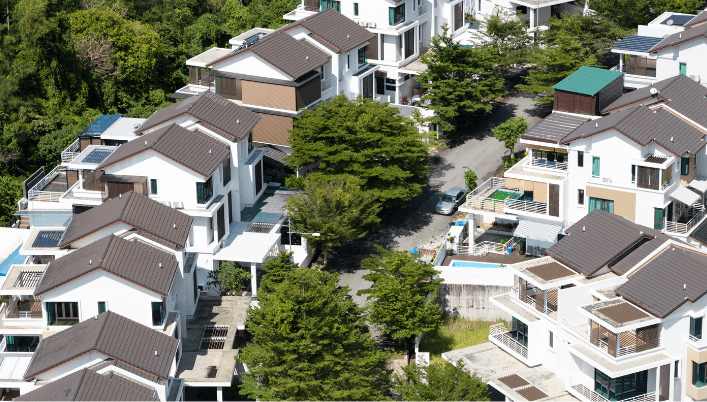
What are detached houses?
Detached houses, also known as single-detached houses or bungalows, are standalone residential properties that are not connected to any other buildings.
These houses provide ultimate privacy and space for homeowners.
What are the advantages of owning a detached house?
Owning a detached house offers several advantages.
Firstly, homeowners have full control over their property without any shared walls or common spaces.
This allows for more flexibility in terms of customization and renovations.
Additionally, detached houses usually come with larger outdoor spaces such as gardens or yards, providing ample space for outdoor activities or even the possibility of a private swimming pool.
Are there any disadvantages to owning a detached house?
While detached houses offer many advantages, there are also some disadvantages to consider.
One of the main drawbacks is the higher cost compared to other types of properties.
Detached houses are generally more expensive due to the larger land size and exclusive nature.
Additionally, maintaining a detached house can be more time-consuming and costly, as homeowners are responsible for the upkeep of the entire property.
Semi-Detached Houses: A Perfect Blend of Privacy and Community
What are semi-detached houses?
Semi-detached houses, as the name suggests, are properties that are connected to one other house, sharing a common wall.
These houses offer a balance between privacy and community living.
What are the benefits of living in a semi-detached house?
Living in a semi-detached house provides the best of both worlds.
Homeowners can enjoy the privacy and space of a detached house while still having a sense of community with their neighbors.
Additionally, semi-detached houses often have a more affordable price compared to detached houses, making them an attractive option for those who want more space but have a tighter budget.
How do semi-detached houses differ from detached houses?
The main difference between semi-detached houses and detached houses is the shared wall.
Semi-detached houses are connected to one other house, while detached houses are standalone properties.
This shared wall means that homeowners may need to consider noise and privacy concerns with their neighbors, although it is generally less of an issue compared to living in an apartment or condominium.
Terrace Houses: Traditional Charm in Modern Singapore
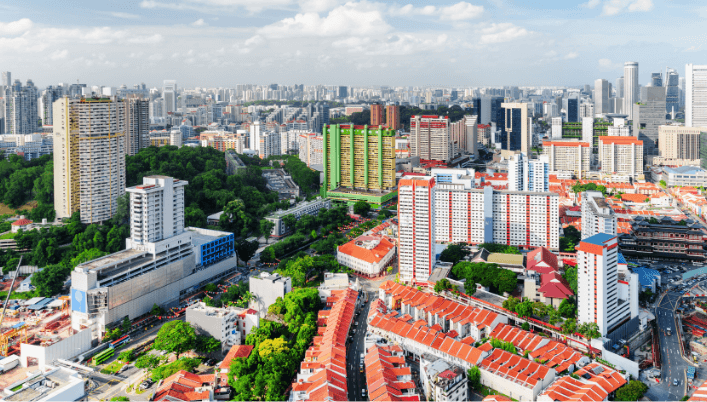
What are terrace houses?
Terrace houses, also known as row houses or shophouses, are houses that are arranged in a row with a common wall between each unit.
These houses are commonly found in older residential areas of Singapore and are known for their architectural charm.
What are the characteristics of terrace houses?
Terrace houses have distinct architectural features.
They typically have a uniform and symmetrical facade, with each unit having its own entrance.
Terrace houses often have multiple storeys, allowing for more living space compared to other types of landed properties.
Additionally, some terrace houses may come with unique features such as a rooftop terrace or a courtyard garden.
What are some considerations when buying a terrace house?
When buying a terrace house, there are several factors to consider.
One important aspect is the leasehold duration, as some terrace houses may have a limited lease period.
Buyers should also assess the condition of the house and any potential renovation costs.
Additionally, location plays a vital role, as terrace houses in prime districts often come with a higher price tag.
Embracing the Laid-Back Lifestyle of Bungalows
When it comes to housing options in Singapore, bungalows hold a special charm.
These spacious and luxurious homes are characterized by their one-story design, allowing residents to embrace a laid-back and relaxed lifestyle.
Bungalows are often found in upscale residential areas and offer a unique sense of privacy and tranquility.
Exploring the charm of bungalows in Singapore
Singapore is known for its diverse range of housing options, and bungalows are no exception.
These prestigious properties are highly sought after for their exclusivity and spaciousness.
With expansive land plots and beautiful gardens, bungalows provide residents with ample outdoor space to unwind and enjoy the natural surroundings.
Finding the perfect bungalow for your lifestyle
When looking for a bungalow, it is important to consider your lifestyle and preferences.
Some bungalows may come with additional features such as a private pool or a rooftop garden, while others may focus on providing a serene and peaceful environment.
It is essential to explore different bungalow options and select one that suits your needs and preferences.
Investment opportunities with bungalows
Bungalows also present lucrative investment opportunities.
As these properties are highly sought after and in limited supply, they tend to hold their value well over time.
Additionally, bungalows can generate significant rental income, making them an attractive option for investors in the real estate market.
Cluster Houses: The Unique Fusion of Privacy and Community
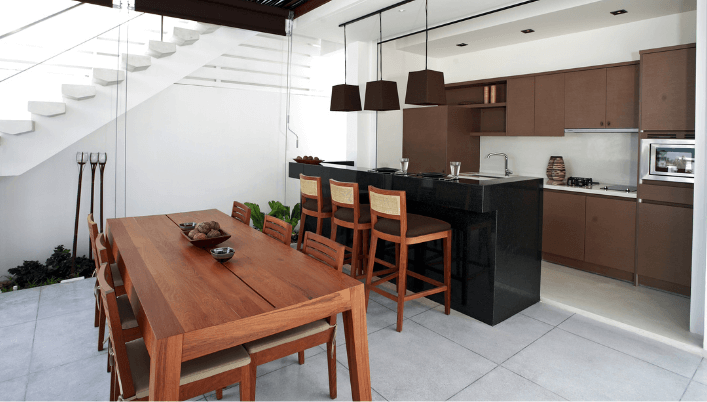
Cluster houses offer a unique fusion of privacy and community living.
These housing types consist of a row of houses built closely together, sharing common facilities and amenities.
Cluster houses are perfect for those who desire a sense of community while still enjoying the privacy of a standalone home.
Understanding the concept of cluster houses
Cluster houses are designed to create a sense of exclusivity and community.
Each house is strata-titled and has its own land plot, providing homeowners with ownership and privacy.
The houses are typically built in a row, with shared facilities such as a swimming pool, playground, and BBQ area, fostering a sense of community among the residents.
Benefits of living in a cluster house
Living in a cluster house offers several advantages.
The shared facilities provide recreational and socializing opportunities for residents.
Additionally, cluster houses often come with added security measures, such as gated entrances and 24-hour security, ensuring the safety of the community.
Moreover, residents can enjoy the benefits of private landed living without the hassle of maintaining individual gardens and outdoor spaces.
Top cluster house developments in Singapore
Singapore boasts several prestigious cluster house developments.
Albert Park and Leedon Park are renowned for their well-designed cluster houses that cater to the needs of discerning homeowners.
These developments offer a range of luxurious facilities and amenities, creating an unparalleled living experience.
Townhouses: Affordable Urban Living in Singapore
If you’re looking for affordable urban living in Singapore, townhouses provide an excellent option.
These properties are typically multi-story homes that offer a blend of convenience, affordability, and urban living.
What are townhouses and their unique features
Townhouses are characterized by their multi-story design and shared walls with neighboring units.
They are often built in rows, creating a visually appealing streetscape.
Townhouses typically have their own entrance and outdoor space, making them feel more like standalone homes than traditional condominiums.
Advantages of choosing a townhouse
One of the primary advantages of choosing a townhouse is affordability.
Townhouses are generally more affordable compared to landed houses or private condominiums.
Additionally, townhouses offer a sense of community and shared responsibility, making them ideal for families or individuals looking for a close-knit neighborhood.
Exploring popular townhouse neighborhoods in Singapore
Singapore has several popular townhouse neighborhoods that are known for their vibrant communities and convenient amenities.
Some notable townhouse neighborhoods include Windsor Park, Cluny Road, and Caldecott Hill Estate.
These areas offer a range of recreational facilities, shopping options, and easy access to transportation.
Navigating Singapore’s Landed Property Market
The landed property market in Singapore can be competitive and complex.
However, with thorough research and careful planning, navigating this market can lead to owning your dream home.
It is crucial to understand the intricacies of Singapore’s landed property market before making any investment decisions.
Introduction to Singapore’s landed property market
The landed property market in Singapore refers to properties that come with land ownership.
These properties include detached, semi-detached, and terrace houses.
Unlike condominiums or apartments, landed houses offer homeowners the freedom to renovate and customize their homes according to their preferences.
Important factors to consider before buying landed property
Before purchasing landed property, it is vital to consider factors such as the minimum land size, land plot, and zoning restrictions.
Each property type has its own set of guidelines and regulations set by the Urban Redevelopment Authority (URA).
Additionally, financing options such as housing loans and stamp duty fees should also be taken into account.
Tips for navigating the competitive market
To navigate the competitive market successfully, it is advisable to engage the services of a professional real estate agent who specializes in landed properties.
They can provide valuable insights, guide you through the buying process, and help negotiate the best deal.
Additionally, staying updated on market trends and attending property viewings can give you a competitive edge.
Types of Private and Landed Properties: A Comprehensive Comparison

When it comes to choosing between private and landed properties, it is essential to understand the differences and select an option that aligns with your preferences and lifestyle.
Both types of properties offer unique advantages and considerations.
Understanding private and landed properties
Private properties include condominiums, apartments, and private housing estates.
These properties are typically developed by private developers and come with various facilities and amenities.
Landed properties, on the other hand, refer to houses that are built on land with individual ownership.
They provide homeowners with the freedom to customize and renovate their homes.
Comparing different types of landed properties
There are several types of landed properties in Singapore, including detached, semi-detached, and terrace houses.
Detached houses offer the highest level of privacy and spaciousness, while semi-detached houses share a common boundary with a neighboring property.
Terrace houses are built in a row and are a more affordable option compared to detached or semi-detached houses.
Choosing between private and landed properties
The choice between private and landed properties ultimately depends on personal preferences and lifestyle requirements.
Private properties are often preferred for their extensive range of facilities and convenient location, while landed properties offer a sense of exclusivity and the opportunity for customization.
Decoding the Different Types of Landed Houses
Detached, Semi-detached and Terrace houses
Detached, semi-detached, and terrace houses are the most common types of landed houses in Singapore.
Detached houses are standalone properties that do not share any walls with neighboring houses.
Semi-detached houses are similar, but they share a common wall with one neighboring house.
Terrace houses, on the other hand, are a row of houses that are connected with each other, sharing both side walls.
Corner Terrace houses
Corner terrace houses are a variation of terrace houses, located at the end of a row.
As the name suggests, they are situated at the corner and have an additional side wall, providing more privacy and space.
Cluster housing
Cluster housing is a unique type of landed property where a group of houses is built on a plot of land, sharing common facilities such as swimming pools, gardens, and gyms.
It offers the privacy and exclusivity of a landed property combined with the convenience of communal amenities.
Investment Potential: Landed Properties in Singapore
Freehold properties
Freehold properties in Singapore offer long-term ownership, with the land and the property belonging to the owner indefinitely.
These properties are highly sought after due to their scarcity and the potential for capital appreciation.
99-year leaseholds
A significant portion of the landed properties in Singapore are leasehold properties, with a lease duration of 99 years.
While the ownership is temporary, these properties still offer a good investment opportunity, especially in prime locations.
Strata-titled landed properties
Strata-titled landed properties are a unique concept where the land is owned collectively by a group of homeowners, while the individual units are owned by the individual homeowners.
It provides a more affordable option for owning a landed property compared to standalone houses.
Exploring Landed Properties by District: From Cluny to Sentosa Cove
Prestigious property types
Some districts in Singapore, such as Cluny and Sentosa Cove, are known for their prestigious property types.
These areas offer luxurious landed residences with high-end amenities and a premium location.
Land space
One of the key factors to consider when buying a landed property is the land space.
The available land area will determine the size of the property and the potential for future expansion or development.
Exclusive luxury facilities
Luxury facilities in landed properties, such as private swimming pools, beautifully landscaped gardens, and state-of-the-art security systems, add to the exclusivity and desirability of the property.
Legal and Financial Considerations When Buying Landed Property
Legal approvals and regulations
Buying a landed property involves various legal approvals and regulations.
These include obtaining the necessary permits, complying with building regulations, and ensuring that the property is not subject to any encumbrances or restrictions.
Financial considerations and investment returns
Before buying a landed property, it is important to carefully consider the financial aspects, such as the affordability of the property, the potential rental yield, and the expected investment returns over the long term.
Economic contributions and taxation
Owning a landed property also comes with economic contributions and taxation.
Property owners are required to pay property taxes and contribute to the local community through property maintenance and upkeep.
Complete Guide to Owning a Landed Property in Singapore
Buying process and paperwork
The process of buying a landed property in Singapore involves several steps, including property search, viewing, negotiation, and the completion of legal paperwork such as the Option to Purchase and Sales and Purchase Agreement.
Choosing the right property
When selecting a landed property, it is important to consider factors such as location, land area, built-up area, and the overall condition of the property.
Engaging the services of a professional real estate agent can be helpful in making an informed decision.
Managing and maintaining a landed property
Owning a landed property comes with the responsibility of managing and maintaining the property.
This includes regular upkeep, repairs, and compliance with any applicable regulations related to the property.
Conclusion
As we’ve delved into the different types of properties, from spacious bungalows to versatile cluster houses, it’s clear that each option offers a unique blend of privacy, community, and investment potential.
Imagine waking up to the serenity of a detached house, where your dreams of customization come to life in the ample outdoor spaces.
Or picture the perfect balance of a semi-detached house, where you can cherish both solitude and neighborly connections.
Terrace houses add a touch of tradition to modern living, while corner terrace houses provide extra seclusion.
Cluster housing introduces the concept of community living, where shared facilities become an extension of your own sanctuary.
The investment potential of both freehold and leasehold properties adds an exciting dimension to your real estate journey.
And as we’ve seen, prestigious districts and exclusive facilities can truly elevate your lifestyle.
But remember, owning a landed property isn’t just about ownership—it’s about becoming a custodian of a unique piece of Singapore’s landscape.
From legal considerations to financial planning, this guide empowers you to make informed decisions as you embark on this enriching adventure.
Whether you’re drawn to the tranquility of a bungalow or the convenience of a cluster house, each type of landed property holds the promise of a life well-lived.
So, as you explore the different avenues that the landed property market has to offer, keep your aspirations high and your vision clear.
Your dream of unparalleled living is closer than you think.
Get ready to unlock the charm of landed properties in Singapore!
Frequently Asked Questions
What are the different types of property landed available in Singapore?
The different types of property landed available in Singapore include good class bungalow, detached, semi-detached, terrace houses, bungalow, cluster house, townhouse, and shophouses.
What is a good class bungalow?
A good class bungalow is a type of landed property that is exclusive to Singapore.
It refers to a high-end and luxury bungalow, typically located in prime areas with large plot widths.
What is the difference between detached and semi-detached houses?
A detached house is a standalone building that is not connected to any other houses.
On the other hand, a semi-detached house is a pair of houses sharing a common wall.
What are terrace houses?
Terrace houses refer to a row of at least three or more houses that are joined together.
They are typically designed in a uniform architectural style.
What is a bungalow?
A bungalow is a single-story house, often with a spacious layout and surrounded by a garden or lawn.
What is a townhouse?
A townhouse is a multi-level house that shares one or more walls with other houses.
It is similar to a terrace house but may have more levels.
What are shophouses?
Shophouses are two or three-story buildings that have a shop on the ground floor and a residence on the upper floors.
They are typically found in older parts of Singapore.
Which type of landed property is most common in Singapore?
Terrace houses are the most common type of landed property in Singapore due to their affordability and availability.
What are the requirements for buying landed property in Singapore?
According to the Residential Property Act, only Singapore citizens are eligible to buy landed property without prior approval from the Singapore Land Authority.



